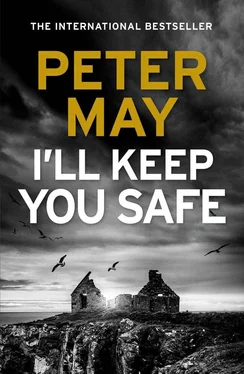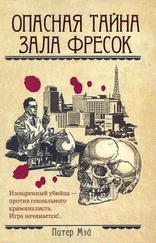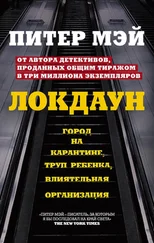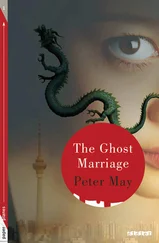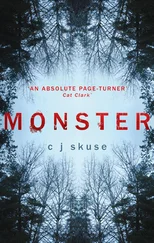‘And we know that Blunt was back on the island last week. What about William?’
Gunn shrugged. ‘That, Ma’am, remains to be seen.’ He stopped at the door. ‘And it might just be possible for us to see exactly that.’ He held the door open for her to step out into Cromwell Street and a breeze that was growing stiffer on this grey funeral morning. Lights burned in the Baltic Bookshop opposite. McNeill’s pub next door was still locked up securely. Too early yet for Stornoway’s drinkers to be out. ‘There.’ He pointed, and Braque followed his finger. Fixed to the wall, high up on the corner with Francis Street, hung a black globe in a bell-shaped hood. A CCTV multi-camera security orb that would provide a perfect view of anyone entering or leaving the library.
Braque understood the significance of it immediately. ‘Where can we access the footage?’
‘At the police station, Ma’am. It’s all held on a hard disk, as far back, certainly, as we’re going to need it.’ He smiled. ‘We do keep up with the latest technology, you know, even if we are just a wee island.’
‘We can check it now, then?’
Gunn pulled back the sleeve of his anorak to look at his watch. ‘Well, Ma’am, it’ll take a wee while to set it up. And we don’t want to be late for the funeral. And who knows who we’re going to see there, that we might not otherwise recognize on the CCTV footage. Best we go to the funeral first, and check out the footage this afternoon.’ He grinned. ‘After all, it’s not going anywhere.’
Just as she had driven up the west coast yesterday afternoon in the rain, so Niamh drove down it again this morning in the rain. A light rain, finer than drizzle. A smirr. Almost a mist, blowing in off the sea.
In the middle of the night, after lying in the dark for so many sleepless hours, she had finally got up to wander through to the kitchen and make herself a cup of tea. Anything to calm her growing sense of paranoia. For the first time since she and Ruairidh had built their house out there on the cliffs, she felt unsafe in it. That, in spite of having locked every door and secured every window.
The tiniest sound, or creak, or muted gust of wind, caused a flutter in her chest. It had occurred to her sometime in the small hours that whoever had tried to kill her might be the same person who had killed Ruairidh. Though the why of it escaped her. Just trying to make some kind of sense of it all had given her a headache that the tea did nothing to alleviate.
Eventually she had gone back to bed to lie tortured and afraid, stricken still with grief for the man she was going to lay in the ground in the morning.
Sometime, not long before the arrival of daylight, she drifted off into a shallow sleep that was interrupted immediately, it felt, by the alarm she had set the night before. Just that short period of sleep, while blessed in its fleeting relief, had left her feeling worse than if she had remained awake all night.
Now she found it hard to focus on the road. The smear of rain across her windscreen in poor light forced her to blink repeatedly to stay awake. Why, she wondered, could she not have felt this sleepy the night before?
Balanish was deserted as she drove through the empty main street. Away to her right, beyond the protective arm of the peninsula that sheltered the harbour, she saw the ocean rolling in, relentless white tops crashing all along the coast.
As she parked on the road above the house where she had grown up, and stepped out into the wind and rain, she felt like a ghost revisiting a past life. Wraithlike and insubstantial as she walked down the path, past the loom shed to the back door. She almost expected that her mother would not see her when she opened it.
‘Since when does a daughter of mine have to knock on the door of her own house,’ her mother reprimanded her. And Niamh was almost relieved that she was not invisible after all.
In spite of the oil-fired central heating, and the peat fire smouldering in the hearth, the atmosphere in the house was frigid. Uilleam sat by the window at the back of the sitting room and would not even meet her eye. Her father was installed in his habitual armchair by the fire, the morning paper folded across his thighs. He glanced at her over his reading glasses, and all that Niamh could see was his embarrassment.
‘So...’ her mother said. ‘To what do we owe the honour?’
‘You know it’s Ruairidh’s funeral today.’ It wasn’t a question.
‘Of course.’
‘Uilleam tells me you plan not to attend.’
Her mother glanced at her son, who turned his head to look out of the window. ‘Did he?’
‘Is that true?’ Niamh turned towards her father. ‘Dad?’
‘Your father’s not been feeling so good.’
Niamh wheeled angrily on her mother. ‘Why don’t you let him speak for himself, just once in his life?’ Her mother recoiled, as if from a slap. And Niamh turned back to her father. ‘Dad?’
He gave a feeble shrug of his shoulders. ‘I don’t see why we couldn’t.’
‘We’re not going.’ Her mother’s voice was hard as steel.
Niamh turned to look at her again. Stared directly into her eyes until her mother was forced to avert them. She said very quietly, ‘I’m not asking any of you to go for Ruairidh. I’m asking you to go for me.’ She paused. ‘And if you can’t do that... If you can’t do that, then I have no family.’ She turned and pushed her way from the room, out through the kitchen and the back door, almost hyperventilating. To stand for a moment on the back step, gazing out across the garden where she had played as a child. At the bothag which she and Seonag had imagined so colourfully as a house, filling it with dollies and miniature plates and cups and saucers. At the old blackhouse where her grandfather once wove Harris Tweed.
And still the rain wept from a sky that leached all happiness from once precious memories.
There was a large gathering of cars outside the Macfarlane croft house. Too many for the metalled parking area, and they extended well down the hill on the single-track road that led to the bridge. More were arriving all the time. Niamh parked by the bridge itself and walked up the hill through the rain. She wore a black dress and shawl, and a pillbox hat and net that she had bought for a previous funeral. Her hair was pinned up beneath it, severe and uncompromising. She wore no make-up and her skin was ghostly pale, penumbrous shadows beneath sad hazel eyes.
Mourners arriving at the house appeared almost embarrassed to see her, nodding solemnly before quickly averting their eyes. People parted to let her through, as if somehow death had contaminated her.
The hearse was parked on the road, and the coffin prepared by Alasdair Macrae sat across several chairs in the porch at the front. Ruairidh’s final view from the house in which he had grown up, blurred through windows distorted by rain.
Mrs Macfarlane led her through to the porch from the sitting room. ‘We’ve had literally hundreds come to pay their respects,’ she said. ‘A constant stream of family and friends, and well-wishers from around the island.’
Well-wishers. What irony. How could Ruairidh’s mother ever have known that this was the name adopted by her son’s killer. Well wisher . Whatever else he had wished Ruairidh, it wasn’t well.
‘The minister’ll be here soon. I wanted to have the service in the house, like they used to do it. As you know, Ruairidh was never much one for the church himself. So it seemed, you know, more appropriate.’
Niamh nodded. For once, Mrs Macfarlane had judged it right.
‘I’ll leave you with him for a few moments.’ And she withdrew discreetly to leave Niamh with the coffin and the knowledge of what lay inside. There was no comfort in it. Nothing could take away the horror of the moment in the Place de la République when the explosion had knocked her from her feet. Or when the undertaker in Paris had placed the coffin for still-borns on his desk, and Niamh had visualized for the first time exactly what that explosion had done to the man she loved. What little of him it had left her.
Читать дальше
